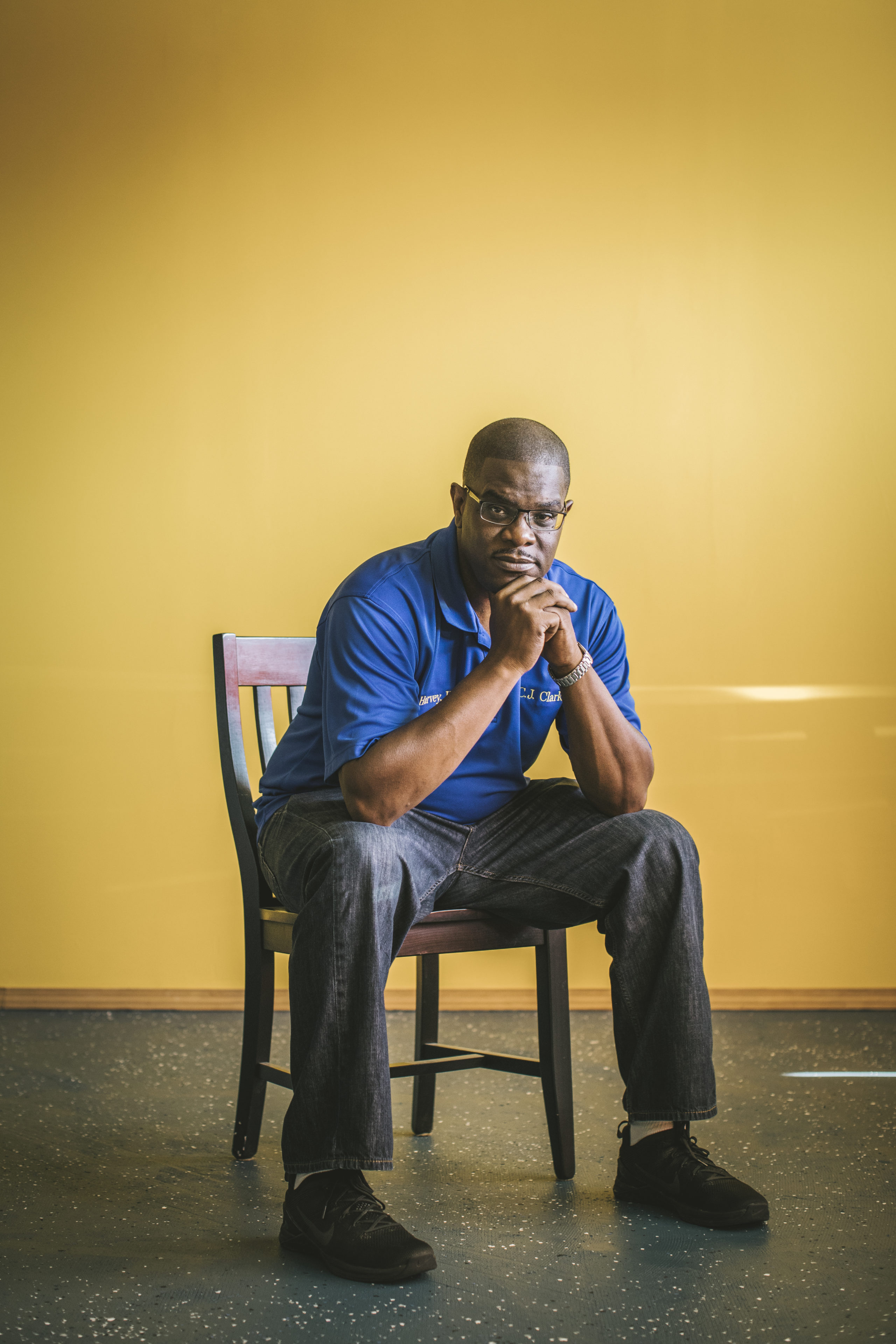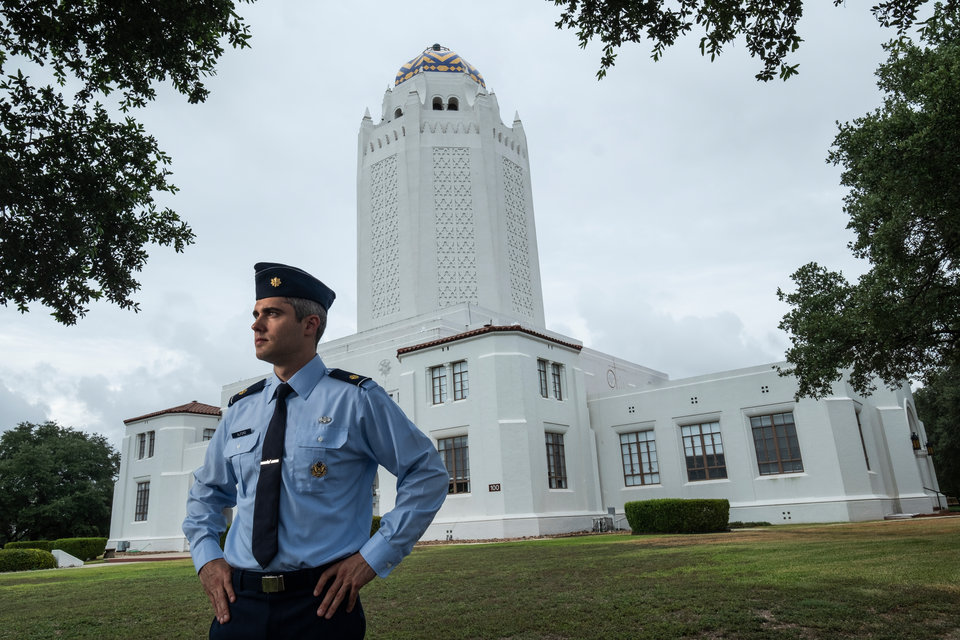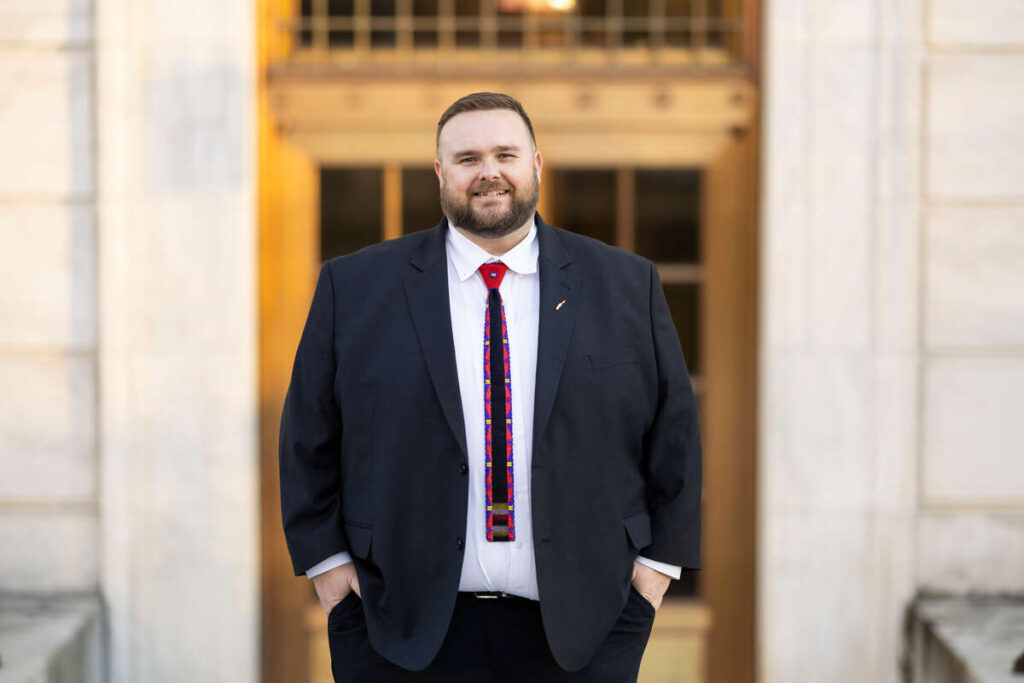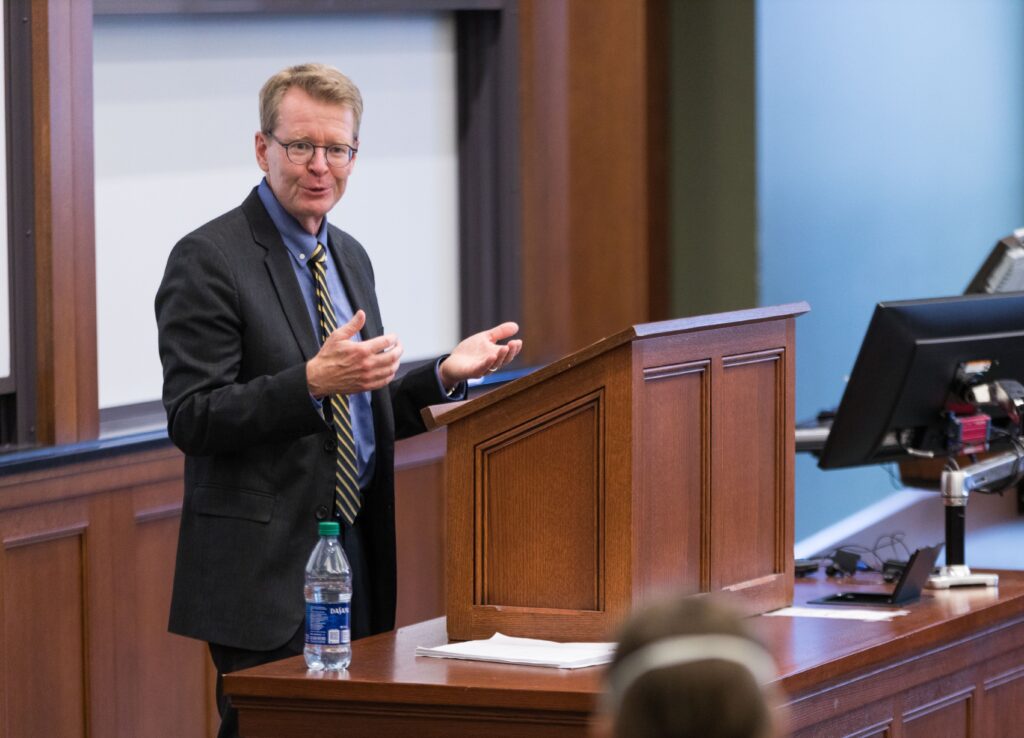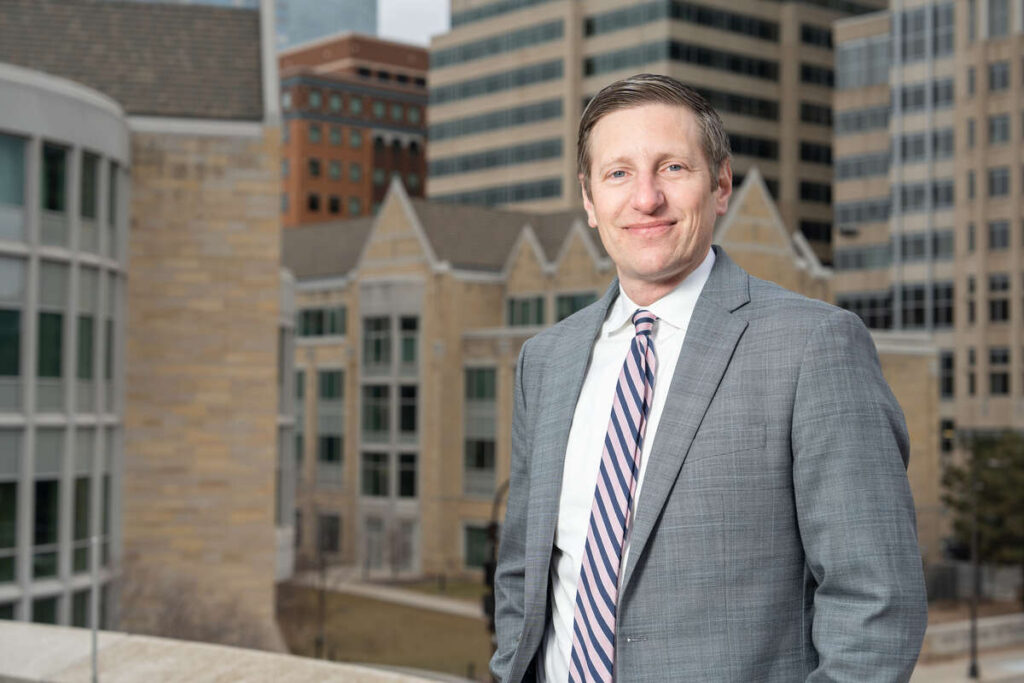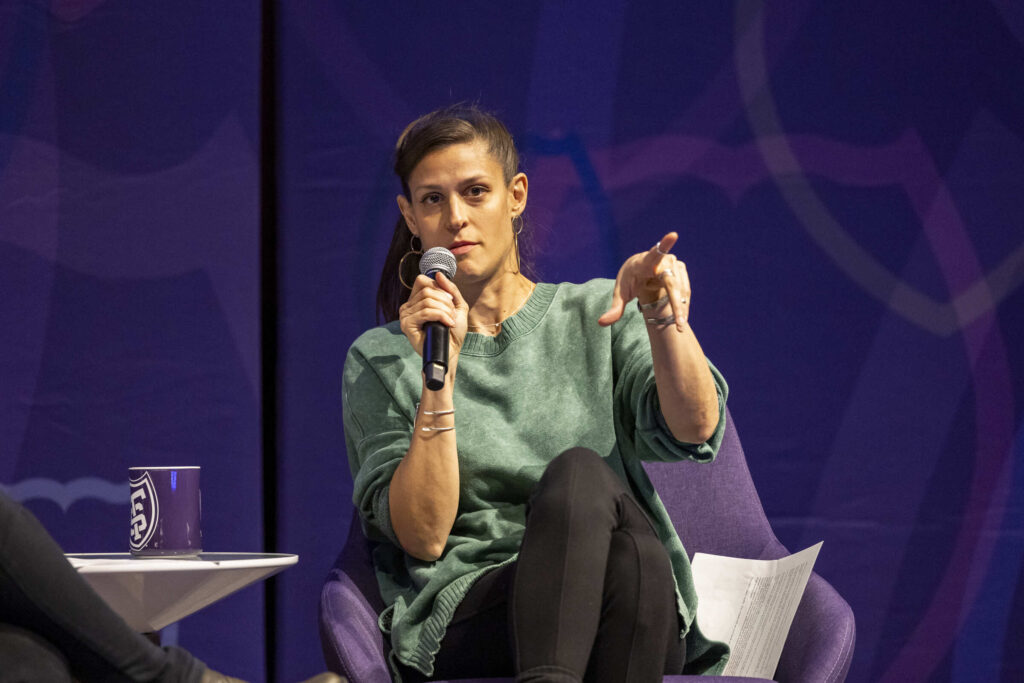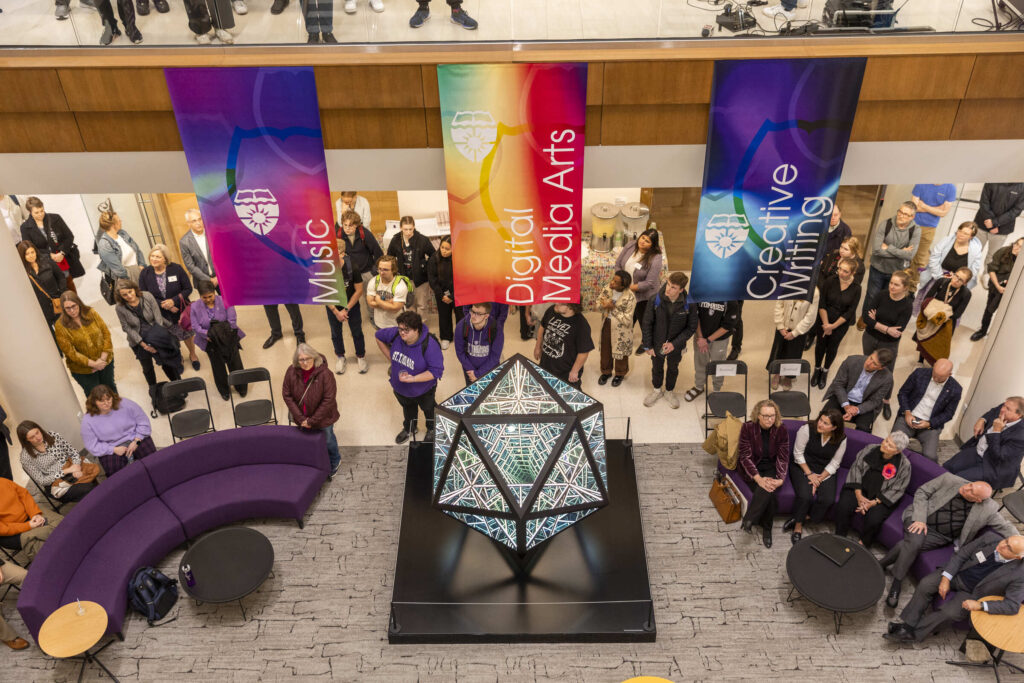The moment Christopher Clark set foot inside the University of St. Thomas School of Law, he knew exactly where he was headed after earning his degree – back home.
“I told everybody, ‘My name is Christopher Clark, and I’m from the best place on earth,’” Clark ’09 J.D. recalled.
Clark hails from Harvey, Illinois, a town of 25,000 in Cook County less than 25 miles south of Chicago. As an alderman and current mayoral candidate, he’s dedicated to serving his constituents in a city struggling with poverty, crime and unemployment. As a lawyer, he has the only general private practice in town.
“One of the wonderful things about practicing law in Harvey is that my ability is constantly fluid. I never know what the day is going to bring,” Clark said. “I say, ‘I bet that will never happen,’ and it happens.”
As an alderman, he does everything from helping to introduce policies and laws, to addressing “regular kitchen-table issues.”
“I’ve helped an elderly woman light her furnace in the winter because her pilot light went out. I’ve helped someone with their internet. I mow lawns,” Clark said. “We have grasses here that are over four-feet high because the city hasn’t cut the lot, so I purchased a brush and grass mower to be able to do that and to cut down trees. These are things I do myself to help people financially in whatever way I can.”
Inspired to attend law school in part by the injustices he saw as a union representative while employed as a steel worker, Clark said he has been an advocate all his life.
Clark knows his work as an attorney is important to his clients, but for him it’s just as vital to be a community advocate and leader. It’s not about the billable hours or the bottom line, but about helping people and making his community stronger. That’s the feeling of many St. Thomas Law graduates who are motivated to contribute to their communities, whether through politics, board work or other civic leadership.

Christopher Clark, right, talks with friend Forrest Lindley, left, in Harvey, Illinois.
A Public Servant
As an adjunct professor who teaches a St. Thomas Law externship course, Elizabeth Tolzmann ’05 J.D. talks to her students about the value of being a better public servant, above and beyond the practice of law, and about finding their purpose and core values regardless of whether they end up practicing.
She’ll never forget what Senior Assistant Dean for External Relations and Programs Lisa Montpetit Brabbit said to her on her first day of law school: “Your reputation starts today.”
“What people value about me is my fresh perspective and insights on how to effectively and meaningfully engage with the community. It’s not about just checking a box, but how we’re involving them in the decision-making process and instituting policies that are impactful,” Tolzmann said of her job as director of policy and planning for Ramsey County. “We live and breathe our mission every single day. We’re moving the needle on our disparities and equity work and changing how government runs compared to 15-20 years ago.”
With a background as a refugee and immigrant, Tolzmann has personal experience with injustices and inequities her family and community have experienced over the years. She emigrated from Laos with her family when she was a baby and has a passion for helping people. Tolzmann pursued a career in immigration law, eventually starting her own firm.
After more than a decade in practice, Tolzmann sought to make a greater impact in her community and decided the best way to do that was by working in government. While still doing a bit of law on the side, she applied for a mid-level coordinator position and quickly worked her way up to an executive-level position with Ramsey County.
“At first, the transition was extremely difficult,” she said. “Knowing I was giving up my title of attorney, but I wasn’t giving it up completely because I still do pro bono work on the side. I’ve never regretted the decision to shift from private practice to government work. I have a great work-life balance. I feel true to my core values and sense of purpose. I’m doing impactful things at this level.”
Advocating for Entrepreneurs
For nearly a decade, Jake Grassel ’09 worked at a law firm where he made close connections and had great mentors. But earlier this year, Grassel decided it was time for a change. Embracing his entrepreneurial dreams, he started his own firm specializing in real estate transactions and business and real estate litigation. Now, he has more control over how much he bills and how much pro bono and discounted work he does, and has more opportunities to consult and mentor.
“I get to help entrepreneurs who are trying to live their dreams,” Grassel said. “They need an advocate.”
He said that some of the clients he’s helped have been laid off from their jobs. “They need to find a way to put food on the table. I need to be mindful about that and not take more money out of their pocket,” he said. “I have to put food on the table for my family, as well, but there is a way you can do that – to provide good services and be mindful of the circumstances entrepreneurs find themselves in.”
One of Grassel’s clients started a daycare in her basement. He recalled how he went from helping her with a minor landlord dispute to being there when she opened two large daycare centers.
“My client went from trying to find something to survive, to being a successful business owner living her dream,” he said. “Throughout the process I got to be her lawyer, but also her counselor. We’ve had a trusted long-term relationship.”
Grassel always has been interested in advocacy, and he appreciated the law school pushing him and his classmates to think beyond billable hours.
“There was always an emphasis on giving back, using your degree, using your knowledge, your place in the community to expand or build the profession by giving it a better standing in peoples’ minds,” Grassel said. “That was done through service to others, and that was coming out of Catholic philosophy. They prepared me to always give back. There are less fortunate people in our society, and we must never forget this.”
Out in his community, Grassel is passionate about advancing policies that are in line with his beliefs. Along with volunteering for political candidates, he serves as a co-chair of the young leadership council of the Center of the American Experiment, a nonprofit conservative think tank, and as executive director of Citizens Against Gambling Expansion.
“I believe in everything you do, you have to look to the next generation,” Grassel said. “Our generation was entrusted with a lot from our parents, our grandparents, and we need to leave the world better off. We need to add to it, not take from it. I want to know what policies are going to leave this country and my community in better shape for my children than it is for me.”
The Importance of Politics
At one point during Katharine Tinucci’s time in law school, she thought she’d practice canon law. Turns out, after graduation, she didn’t go the law route. Instead, her career took a political turn as she worked on Minnesota Gov. Mark Dayton’s gubernatorial campaign in various roles, including press secretary and campaign manager.
“I came to politics as a person compelled by faith or compelled by what I believe as a Catholic woman,” Tinucci ’09 said. “My faith informed what I think public policy should be. Of course, that’s not as uniform as people might have you think. I’m a Catholic liberal Democrat. St. Thomas helped prepare me to speak to those ideas. And that was important for me, no matter what I did.”

University of St. Thomas School of Law alums Katharine Tinucci, left, and Leah Koch at the offices of mza+co in St. Paul on July 31, 2018.
During her work with Dayton, Tinucci said they were looking at policies and making decisions about the state budget that would have a huge impact on people’s lives. There were major topics on the table – all-day kindergarten, affordable health care and same-sex marriage – when she was part of the Dayton administration, and she remembered hearing from people on all sides of the issues. In 2016, Tinucci ventured into a new career, becoming senior vice president at MZA+Co, a bipartisan public relations and government affairs firm.
“A lot of people hate politics,” Tinucci said. “They don’t want to talk about it. They’re sick of it. But this is where stuff happens. Campaigns matter, the legislative session matters. There are real consequences to elections. It’s easy to be critical of laws and our legislators supporting or not supporting laws, but those are real consequences of campaigns and elections. That’s why I continue to care, engage and work in the political realm.”
One of the bipartisan efforts the folks at MZA+Co worked on was 2016’s drug sentencing reform. It was the most significant drug sentencing reform to happen in a generation, she said.
“In my work now, I don’t lobby, I don’t write laws, but I’m helping to educate the public about stuff that matters – water quality or the importance of transit, for example,” Tinucci explained. “That’s the stuff that can absolutely make a difference. People can change things. Things can change. Now isn’t the time to be cynical. If you’re angry, get involved.”
The Right To Vote
When Dave Griggs turned 18, he was old enough to vote, but he didn’t.
“I was interested in it, but I wasn’t motivated,” Griggs ’07 said.
A lot has changed since then. In January, Griggs took over as executive director of VoteRiders, a non-partisan Washington, D.C.-based nonprofit that helps citizens exercise their right to vote by making sure they have the proper identification.
Thirty-four states have voter ID laws. Those laws “disproportionately affect people of color, low-income people, the elderly, people with disabilities, students and young people, people who move around a lot,” Griggs said. “They’re prevented from participating. A big issue of voter ID is voter confusion. People don’t know what the law is. What we try to do is partner with different organizations that are working in the community to provide trainings, materials on what the law is and the process for getting an ID.”
Griggs has a long history of working on political campaigns, starting with former Minnesota Sen. Paul Wellstone’s reelection bid in 2002. (Wellstone died in a plane crash before the election.) Prior to VoteRiders, Griggs was chief political officer of the Democratic Legislative Campaign Committee.
In law school, Griggs took advantage of internships, externships, clinics and classes in an attempt to pinpoint his interests and discover where his skills fit best. Along the way, he discovered his passion for making sure people had their voices heard. He knew he wanted to make an impact and feel good about the work that allowed him to earn a paycheck.
“Voter ID is an important issue; it’s something I care about,” Griggs said. “I’ve taken on the challenge of trying to put together this program. It can be difficult, frustrating – I could be making more money at a big firm, but I don’t fit that environment and that’s OK.”
Changing Communities to Change the World
Christopher Clark said it would have been easy for him to stay in Minnesota after law school, but his return to Harvey was never in question. People there needed an advocate, and Clark was able to bring everything he learned at St. Thomas back home to help his community.
“There’s something about having a law degree that gets a different response from people. When you walk into a room, the level of respect goes up,” Clark said. “Just what the degree itself brings to the table is already a miracle in itself. I can have a community member living in the city go to city hall and say 'x, y and z' with little response. Then I can come around and do the exact same thing and the response is ‘Oh, now there is a lawyer walking through the door, and I hear we can get that done; we can take care of that.’”
When Clark was a child growing up in Harvey, on summer days he used to walk by a law office on his way to the public swimming pool. He didn’t really know what it meant to be a lawyer back then, but he saw the big gold letters in the window and dreamed about what his life would be like. Today his law office sits a block away from the one in his childhood memories.
“I believe and hope and pray the purpose of my office being in the city of Harvey, in the location where it is – I’m hoping there’s some young man or woman walking past my office who will see it every single day, and it will have the same effect on them as the law office of my youth had on me,” he said.
“Maybe I’m naive,” he continued, “but I believe if I work to change this little corner of the world and you work to change your little corner and somebody else changes their corner, we’ll all have a better place to live.”
